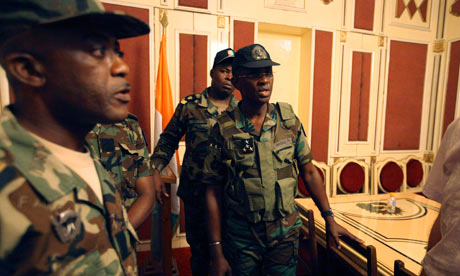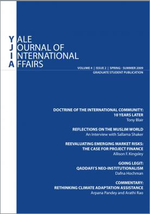What if NCAA Basketball Tournament Teams were coached by Development Economists?
 Tomorrow night is the next round of March Madness, the annual NCAA tournament that started off with 64 college basketball teams, now reduced to the "Sweet Sixteen" .
It is not widely known that some lower seeded teams in the tournament, who had to play much better teams, desperately sought advice from leading Development Economists.
Tomorrow night is the next round of March Madness, the annual NCAA tournament that started off with 64 college basketball teams, now reduced to the "Sweet Sixteen" .
It is not widely known that some lower seeded teams in the tournament, who had to play much better teams, desperately sought advice from leading Development Economists.
A Columbia Professor said we already know the successful ingredients for a championship, just get lots of funding for the inputs to a victory. Each of his players was given a beautfiul new basketball but had no incentive to pass it or shoot it.
An Oxford Professor distributed “peacekeeping equipment” to his team, saying it was critical for his Good Team backed by the UN Security Council and the G-7 to win. The other team fled in panic, but was declared the winner by default by tournament officials.
An NYU Professor said a lower seed had never won the tournament and he saw no reason why it would be possible now. He and his team left for a vacation in Cancún.
Other Professors such as Duflo, Banerjee, and Karlan set up randomized trials for which plays work. Treatments included 3-point shots, driving layups, pick and roll, and passing to the open player, compared to a control group holding the ball still. The results were of considerable interest, but players got very confused trying to remember which study to cite and apply in each pressure-packed moment of the game. They did not make the Sweet Sixteen.
Hernando de Soto said the only thing that mattered was property rights. He called for secure titles to his team's land. This team defended its own half-court successfully, but they were forced to recognize the other team's rights also. There was not a lot of scoring.
Mohammed Yunus said it's all about microcredit. He suggested empowering his team's players with micro loans. This was a great success, as players all left the court to start small businesses selling beer and pretzels in the stands.
Finally,the team asking advice from George Mason Professor of Economics Peter Boettke made a Cinderella run into the Sweet Sixteen. What was his brilliant economics advice? Well, he chose not to give any, but he had actually played and coached basketball in high school and college.
Were the above characterizations inaccurate? Everybody can participate in the usual heavy betting on this tournament -- fill out your own brackets below to determine who will advance to the semifinals and then the finals, and who the final winner will be.
 From Aid to Equality
From Aid to Equality


